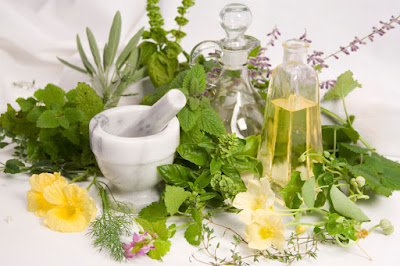Conserving medicinal plants, vital in drug research, development
Taking a cursory look at the nation’s healthcare sector, the
significant contribution of Traditional Medicine (TM) as a major provider of
healthcare delivery to orthodox medicines cannot be overlooked. This is due to
the fact that TM products have over time been the mainstay for over 60 percent
of Nigerians living in rural areas, following its accessibility and
affordability.
While in most parts of the African continent, TM and western
medicine exist side by side with people using either or both of them for
treatment. The World Health Organisation (WHO) launched a comprehensive
traditional medicine strategy in 2002, emphasising on the documentation,
development and promotion of TM, herbal remedies and medicinal plants through
research and the development of stronger evidence based on safety, efficacy and
quality of the TM products and practices.
With some African countries putting in place mechanisms for
registration of traditional medicines legislation, regulatory framework and
institutional instruments for developing African traditional medicines (ATM)
and locally producing commercial quantities of standardised ATM and
subsequently integrating TM into the public health care systems, experts
believe that conserving of medicinal plants, which is Africa’s heritage will
not only assist in promoting documentation and ensuring sustainable utilisation
of Africa’s bioresources, but will also help in the integration of TM into the
nation’s healthcare sector.
Tamunoibuomi Okujagu, director general, Nigeria Natural Medicine
Development Agency (NNMDA), in an interview with BusinessDay, revealed that the
theme for this year’s ATM day celebration “Conservation of medicinal plants;
Africa’s heritage,” is critical and important, bearing in mind the potential of
Africa ’s huge, exotic and diverse bioresources and biodiversity.
While maintaining that the Agency’s activity in the
development of pilot/ experimental medicinal, aromatic and pesticidals
plant(MAPPs) farms/nurseries in the six geopolitical zones is aimed at cultivating
properly identified plants in the areas that they can grow best, preserve
plants that are facing extinction, facilitate the study and documentation of
the biotic factors needed for medicinal plants to be grown, domesticated and
cultivated, Okujagu noted that this will further deepen the area of research
and development needed to unravel the efficacy and potency of herbal medicines
being scientifically investigated.
In his words, “as part of the agency’s activities, it is in
collaboration with the Global Institute of Bio-Exploration (GIBEX)-Federal University of Technology (FUT), Minna, to
convene a stakeholders’ forum and national symposium on the development of
medicinal plants as a means to achieving the MDG for improved health
access. “Prior to the symposium, there
is a Memorandum of Understanding (MoU), to take possession of the land which
the Vice Chancellor, FUT, Minna, generously donated for collaborative research
between the university, NNMDA, and GIBEX. It is hoped that this project, in addition
to research and development in MAPPS for traditional medicine development and
promotion, will encourage the selection and domestication of highly needed
MAPPS to aid researchers.”
Tony Akhimen, DG, former president, Pharmaceutical Society
of Nigeria (PSN), stated that even as the efficacy and potency of herbal
medicines are being scientifically investigated, acknowledged and documented,
the challenge for the Nigerian government is to work out policies that will
regulate the herbal medicine sector.
According to him, “the overriding interest must be how to
integrate herbal medicine into the mainstream of national healthcare system,
intellectual property rights protection for traditional medicine practitioners,
proper registration and certification of traditional medicine practitioners,
speedy passage of traditional medicine bill and government’s support for
documentation, standardisation and protection of herbal plants from extinction
due to human activities. No doubt, herbal medicine is the future of pharmacy.
It is the source of raw materials for most pharmaceutical drugs.”
It is noteworthy to state that African countries such as
South Africa, Ghana, Egypt and Morocco had keyed into the initiatives and
maintained specific institutional mandates to fast-track the co-ordination of
research and development, promotion and documentation of traditional medicine.
Already, the global health body acknowledges this growing need and potential of
natural medicine and has continued to encourage and support its promotion,
documentation, research and development through several initiatives.
While the global market for traditional therapies stands at
US$ 60 billion annually and is steadily growing even as China and India usually
record between two to five billion dollars, it is believed that in developed
countries, like France, about 75 percent of its population use complementary
medicine, at least, once; in Germany, about 77 percent of pain clinics provide
acupuncture; and in the United Kingdom, expenditure on complementary or
alternative medicine stands at US$ 2300 million per year.
Giving the enormous economic and health opportunity which
traditional medicine offers, there is the need for a holistic step to ensure
that effective legislation, goals and strategies are in place in order to
incorporate traditional medicine into Nigeria’s healthcare system. Already, the
WHO’s strategy on traditional medicine provides a framework for policy to
assist countries regulate traditional or complementary/alternative medicine (TM/CAM)
to make its use safer, more accessible to their populations and sustainable.
For Olukemi Odukoya, professor of Pharmacognosy, University
of Lagos, Pharmacognosy is the vital link between traditional and orthodox
systems of medicine and has its facts in traditional systems of medicine and
traditional use of traditional plants.
“Efforts have been made by Nigerian researchers on
scientific evaluation and validation of the nation’s medicinal aromatic plants,
healing arts and systems, hence, the inclusion of traditional medicine into the
country’s MDGs as directed by the WHO and African Union (AU) will go a long way
in attaining health for all by 2015; otherwise, the dream could be elusive,”
Odukoya stated.




Comments
Post a Comment